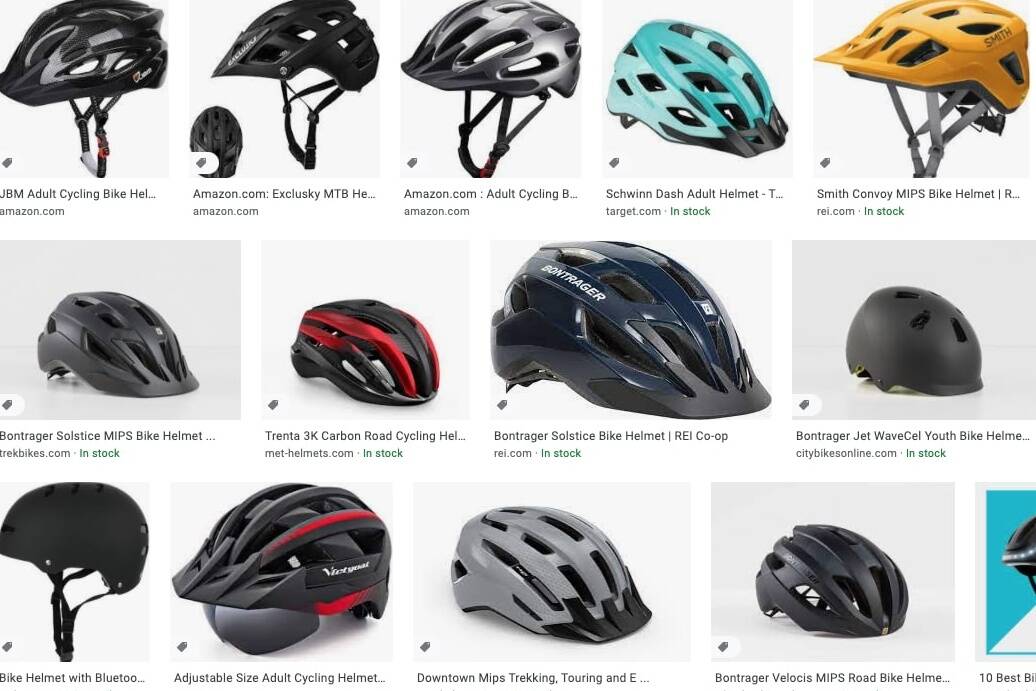On Oct. 21, the King County Board of Health discussed striking down a county law that requires bicycle riders to wear helmets because of data that identified racial and socio-economic disparities in how the law was being enforced by police.
In June, the board heard a briefing and a panel discussion on bicycle helmet laws in King County and the disparate impacts of enforcement of the helmet regulations. Data presented demonstrated that citations were issued to Black, Indigenous and people of color more frequently than to white cyclists, and that persons experiencing homelessness reported that the helmet requirement is a commonly cited reason for engagement with law enforcement.
Now county leaders are trying to decide the role of government in enforcing public safety rules that should be common sense; how that enforcement can be equitable; and whether using law enforcement to compel good public safety practices is effective in the first place.
During the public comment period of the health board’s meeting, many public health experts, advocates, and those who have experienced bicycle brain injury testified on behalf of the importance of bicycle helmets in reducing the risk of permanent brain injury.
“There were many people in public comment who were commenting on a question that is not before us today,” said board member and King County Councilmember Girmay Zahilay. “Absolutely, helmets are effective. Absolutely, people should wear them. There is not a single person on the Board of Health who has not already assumed those things to be true in their analysis. The questions before us are the methods of enforcement, the involvement of police officers in a non-criminal activity, the financial impact of citations, and whether there are alternative paths we can take to achieve very high adherence to helmet use without the potentially negative consequences of police contact and disparate impact.”
Policies and public interest
The government could be seen as having a vested public interest in reducing these kinds of brain injuries. Permanent brain trauma has both a negative economic and well-being impact on not just the person who sustained the injury, but their family and the people who depend on them. Seventeen cities in the county have their own bicycle helmet mandate including Auburn, Bellevue, Black Diamond, Burien, Des Moines, Duvall, Enumclaw, Federal Way, Issaquah, Kent, Lake Forest Park, Maple Valley, North Bend, Pacific, Renton, SeaTac and Snoqualmie.
However, with racism itself declared a public health crisis by the King County Board of Health, they are now having to balance two different threats to public safety: bicycle helmet adherence and the unintended consequences of the methods of enforcement.
During public comment, Seattle attorney Melissa Carter cited an ACLU study done on racial disparities in traffic enforcement in Florida. The study found “significant” racial disparities in those who were stopped and cited by police for seatbelt violations, another enforced safety measure.
“The ACLU did not propose removing seatbelt laws as a solution,” said Carter. “Rather, they said, let’s look at underlying causes and diagnosing the problem of conscious or unconscious bias in policing.”
Tiffani McCoy, who is the advocacy director for Real Change Homeless Empowerment Project, testified in favor of repealing the helmet law, claiming that it has been used as a way for police to “harass” BIPOC community members as well as the homeless, while people like tourists are allowed to break the helmet law without consequence.
“We can’t keep policies that we know are actively harming vulnerable and marginalized communities,” McCoy said.
Seattle Children’s Physician Beth Ebel called the debate around either choosing to keep the helmet law or repealing it in the name of equity a “false dichotomy.”
“Racism is harmful. It causes injury and scars too, but it is not a trade-off between these two. We can have a helmet law and also have a law and a program that is promoting equity,” she testified.
Lee Lambert, executive director of the Cascade Bicycle Club, supported repealing the current helmet law in favor of increased safety education and helmet access in the region. His organization provides low-cost $10 helmets to anyone who needs one. Lambert advocated for a “proactive” approach to helmet safety as opposed to a “punitive” one.
The board ultimately decided to postpone a vote on the issue until their next meeting.
Board member and King County Councilmember Jeanne Kohl-Welles urged the board to wait and explore more data and information before repealing the helmet law. She was concerned that safety education efforts would not be effective to the populations that would most need it, and that the optics of the board of health repealing a law that requires helmets would appear to give the go-ahead to helmetless cyclists.


